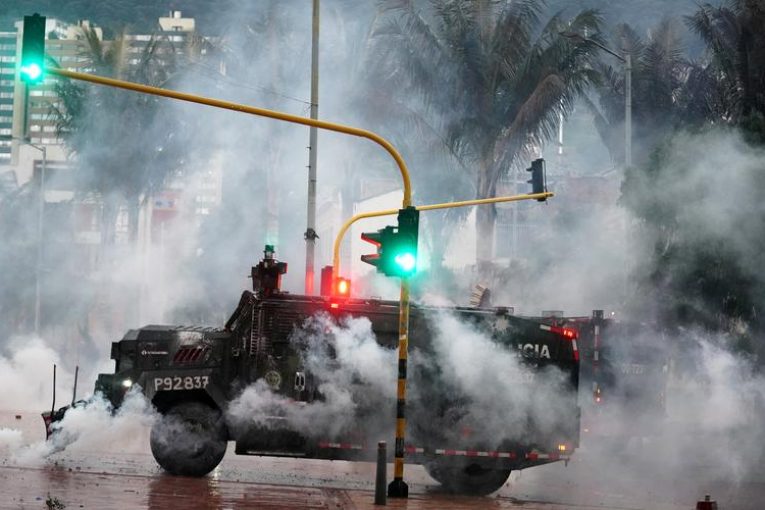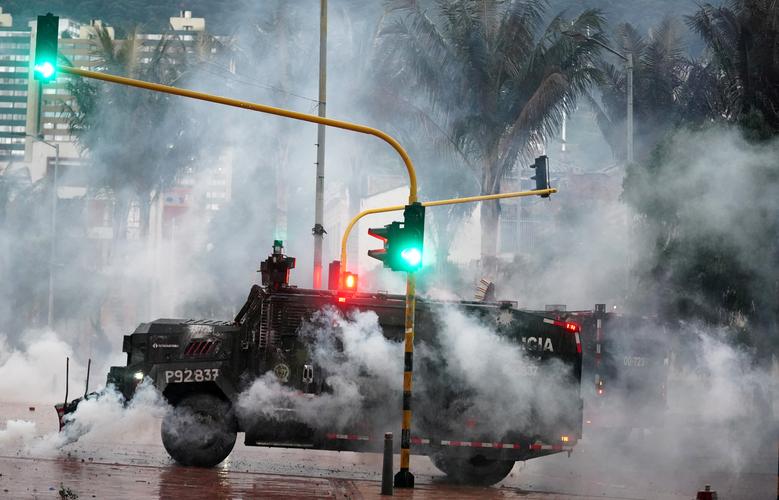

By Uriel Rivas
In late 2019, Latin America was disrupted by questionable democratic authenticity, increasing gaps between the poor and rich and excessive overhead by their respective governments. On Oct. 20, 2019, Evo Morales–who has been the Bolivian president since 2006–won the presidency with the same certainty as first-world countries; still, mounting claims of systematic fraud sparked protests against the president that lasted through the COVID-19 pandemic.
As November came, Chile, Colombia, Ecuador, Peru and Nicaragua participated in social movements that, while independent in their cause, came together to form an important call for peace and honesty.
On May 2, 2021, Colombia withdrew a $6.7 billion tax proposal that would have increased taxes on individual, food and utility bills and purchases. This extreme proposal was seen as necessitated by Colombia’s central bank because if the Colombian government cannot approve a tax law soon, the economy will be negatively impacted by a low credit score that influences its overall credit rating.
Like individuals, countries are given credit ratings based on how well they have been able to pay off their loans. Countries are assigned credit ratings by Standard & Poor, with their highest ranks going from AAA, AA and A illustrating high capacity to repay loans.
Since the credit ratings of BBB+, BBB and BBB- demonstrate the average capacity to repay loans, downgrades into BB+, BB and BB- ratings show an inability to repay loans because of economic hardship. Since Colombia currently stands at average loan repayment ability (BBB-), the pressure to maintain that status by Colombia’s central government enabled the introduction of overreaching tax law. This law, while canceled, has sparked demonstrations calling for an end to poverty and a stop to the excessive policing violence.
For the past seven days, these demonstrations have led to 19 people having been killed and about 800 people having been injured. While not stated officially, it has been seen in various social media posts that disruptions with the Colombia National Police have contributed to these numbers.
Throughout the protests, the most heinous death by the national police was when a teenager kicked a police officer’s motorcycle, only for the officer to retaliate with multiple gunshots targeting and hitting the teenager. There are also videos showing officers shooting into unarmed groups of people, viciously beating people and other obvious problematic behavior.
The officers’ reactions against their people demonstrate how militarized Colombia’s police have become in more recent years and indicate how much the police prioritize the protection of the state over the aim of security for the people.
Eleven years ago, the public approval of Colombia’s national police was not as defined by its capacity to harm its own people but was expressed on maintaining a positive reputation–a belief that Colombian policeman Oscar Naranjo held and that earned him 2010’s title of “world’s best policeman.”
In 2010, these positive developments were due to U.S. assistance in training police personnel and financing new police agencies. Yet, these efforts in labor were not enough to dispel the series of human rights and corruption allegations that leaked out in 2016 and led to 1,400 police officers being dismissed.
With this significant dismissal, there was an urgency to hire individuals who may not meet the qualifications necessary to have been trained as officers. As such, this led to the surprising plummet of police satisfaction from 70 percent in the early 2000s to 48 percent in 2020.
As these protests rage on and the death toll increases, the reminders of honesty and morality amongst the corrupt are essential reminders about the capabilities that can create positive change rather than reiterate the negative nonsense that has dictated this world for far too long.
Uriel Rivas is a Linguistics major located in Davis, California. When he isn’t writing, he can be found walking around the city contemplating the nature of life and the boundaries between reality and fiction.
Support our work – to become a sustaining at $5 – $10- $25 per month hit the link:
